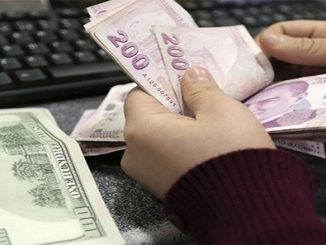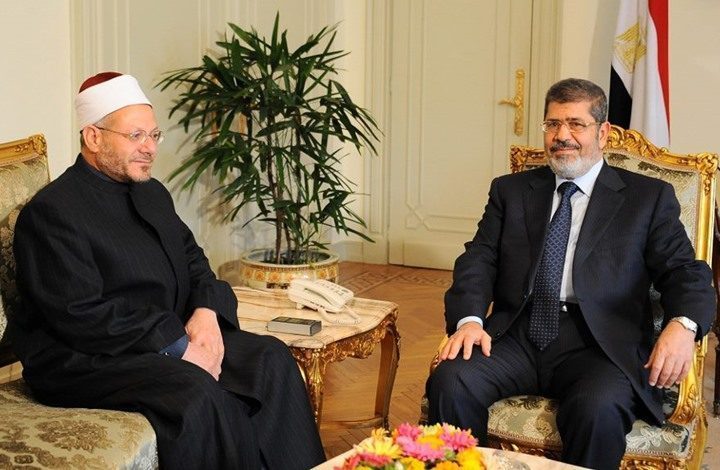
BY: Ismail Numan Telci*
In recent months, there has been an ongoing shift in Egypt’s foreign policy. Despite it could be considered as unnoticed, this unexpected policy change is a source of concern for many actors in the Middle East, particularly the Arab Gulf States that have supported Sisi’s regime since the military coup that took place in Egypt on 3 July 2013. Given the central position of Egypt for today’s politics in the Middle East, it is legitimate to raise the following questions: (1) how this foreign policy shift has been taking place, and (2) what are the implications of such a shift?
In order to better understand today’s alliances, it is important to explain the plot from the beginning when the military coup took place in Egypt in 2013. Since the 2013 Egyptian coup, Saudi Arabia, United Arab Emirates (UAE) and to a lesser extent Kuwait have decided to provide unconditional support for the military regime led by Abdel Fattah al-Sisi. This has been mostly due to their consternation and fear of the Muslim Brotherhood movement. For the leadership elite in those states, the legalization of the Muslim Brotherhood and their ascension into power in Egypt and elsewhere were regarded as most serious threats to their regimes.
While there were no serious grassroots protest movements in these states, the leadership change in Egypt and its potential re-alienation in the Middle East order were regarded by the leadership elite as a latent geostrategic challenge to the regional balance of power and their own persistence of power.. Hoping to change the course of regional dynamics to their advantage these states welcomed the military coup in Egypt and supported it financially and diplomatically to withstand regional and international opposition.
In the aftermath of the military takeover, King Abdullah of Saudi Arabia was the main supporter of Sisi in his fight against the Muslim Brotherhood. Together with the UAE and Kuwait, they provided incredible amount of financial support for the Sisi’s regime. Additionally, they organized a summit in order to attract foreign investment in Cairo. In response, Sisi’s regime was showing loyalty to these countries, particularly to Riyadh.
However, Relations Between Egypt and Saudi Arabia began to change following the death of King Abdullah. The new Saudi leadership under King Salman has followed a different policy path than his predecessor. In domestic affairs, the first sign of this shift was the rearrangement of line of succession in royal leadership. King Salman also replaced the figures from the Royal family, which masterminded the coup in Egypt. Along the novel policy orientation Riyadh became more active in its foreign policy towards Iran as they discovered “actions speak louder than words” in Middle East politics. As a result, the Saudi Defense Minister decided to take action in Yemen in order to mark Saudi’s novel Foreign policy orientation regarding Iran’s expansionist policy in the region
Iranian—Egyptian Axis
Here, Iran stepped in the Saudi-Egyptian relations. Saudi Arabia’s invitation for Egypt to participate in the Decisive Storm operation in Yemen was half-heartedly accepted by Cairo. The Sisi’s regime showed its reluctance to a full-scale participation in the operation due to the logistical inability of the Egyptian military for joining the military operation. However, it is anticipated that Sisi’s reluctant position toward the military operation in Yemen is different from the publicly propagated one. Firstly, Sisi was losing public legitimacy for his perceived obedience vis-à-vis Saudi Arabia. Secondly, the unwillingness of Sisi to engage in a proxy war with Iran. Seeing Iran’s emerge of power in the region probably al-Sisi considered a novel foreign policy toward Iran enabling him of maneuvering Egypt’s international relations vis-à-vis the USA and Saudi Arabia, among other states.
The consequent interactions have proved that true. There have been number of events and policies, which reveal how Egypt moved closer to Iran while distancing itself from Saudi Arabia. It started with a widely unnoticed but disturbing development for the Saudis. The Egyptian body that decides which foreign movies would be broadcasted in Egyptian cinemas approved the Iran-made film (Bodyguard), which glorifies the Iranian general Kassem Soleimani. Egyptian movie critic Mohammad Mansour criticized the decision and argued that “the movie is basically
an attempt to promote the image of Qasem Soleimani, as he represents the Iranian intelligence and military legend that has a strong presence in Syria, Iraq, and Lebanon. Soleimani is considered as the representative of the Iranian dream of expansion, and the movie has a functional, rather than a personal, dimension.”1 The decision to broadcast the movie Bodyguard shows is an indication that Egypt is moving away from its anti-Iranian attitudes toward neutralization of relations with the government in Tehran, albeit through cultural means.
The second development took place at the beginning of October 2016. The officials from the Iranian and Egyptian foreign ministry held a meeting in Tehran in order to discuss the normalization of relations between the two states. Despite differences in a number of issues, both states expressed their willingness to start up new relations that will focus on cooperation in regional affairs.2 The meeting added fuel to the fire as Egypt-Saudi Arabia relations continued to sour as differences between the two leadership elites became more apparent.
In a move of warning, Saudi Arabia’s Aramco stopped flow of fuel to Egypt on 1 October. Riyadh did not publicize the decision in the hope that Cairo would reconsider its drawing closer to Iran. However, a week after the decision Sisi’s response was hostile. Despite Saudi Arabia’s strong opposition, Egypt voted in favor of a Russian-backed U.N. resolution that allows the continuation of bombing over Aleppo. The vote has increased the tension and has created anger in Riyadh toward Egypt’s apparent novel re-alienation toward Russia, Iran and possibly Assad regime.3 Thus, within hours, Saudi Arabia’s Aramco publicly decided to halt fuel transfer to Egypt starting from October. Sisi seemed comfortable as he defiantly emphasized that “Egypt would not bow to anyone but God”.4
Egypt’s response to Saudi Arabia’s oil card also came from a Tehran-based solution. The Kurdish news agency Rudaw reported that following an Iran-Russia brokered deal, the government in Baghdad has agreed to increase its fuel flow to Cairo.5 This is an important development for two simple reasons. First, Egypt showed Saudi Arabia that Riyadh is a replaceable ally in case of dispute. Second, Cairo would more seriously consider Iran in its foreign policy options.
This option has just become more serious when news sources reported that Egyptian Petroleum Minister Tarek al-Molla is planning to visit Tehran.6 Diplomatic relations between Cairo and Tehran has long been frozen since the 1970s. In response to news of such visit Saudi Arabian news outlet Al Arabiya urged “An Egyptian official visiting Iran would cement a break in its alliance with Saudi Arabia and mark a seismic shift in the regional political order”.7
In yet another blow to Saudi Arabia, Iran has convinced Egypt to side with it in regard to the crisis in Syria. The Guardian revealed that Iran’s foreign minister Javad Zarif, personally lobbied Egypt to attend talks in Lausanne that held on 15 October 2016. The foreign ministers of the six states were invited in the original plan of the talks that were convened by US foreign minister John Kerry. The Iranian foreign minister Zarif insistently asked Kerry to invite Egyptian foreign minister to the Lausanne talks. It was also reported that “Iran agreed to attend the talks only once it had secured places for the foreign ministers of Egypt and Iraq at the discussions”. According to Guardian, “the main motivation of Iran was “not to be outnumbered by an anti-Assad coalition – comprising Turkey, Qatar, Saudi Arabia and the United
States – at the Lausanne talks.” Unsurprisingly, it was understood that “Iran’s initiative to convince US for inviting Egyptian officials to attend the talks began a few days before Egypt shocked its financial backer Saudi Arabia by voting with the Russians to block a draft French UN security council resolution on Syria”.8
Egypt’s policy on Syria was another point of disagreement between Cairo and Riyadh. The most recent development in this front was the visit of Syrian Intelligence Chief, Ali Mamluk, to the Egyptian capital. The significance of the visit lay in its scope and timing. It was the first foreign public visit of Ali Mamluk since the eruption of Syrian civil war.9 Regardless of the motivation for such a meeting, Cairo’s decision to host Syrian intelligence chief must have further complicated relations between Saudi Arabia and Egypt. As the relations between Egypt and Saudi Arabia continue to deteriorate, Cairo’s miscalculated decisions will continue to damage the relations.
Sisi’s Risky Gamble?
While the developments could be seen as a low-level diplomatic row between Cairo and Riyadh, the situations turn out to be more complicated and problematic. As the major backer of Sisi’s regime in the post-coup period, the Saudi administration has been expecting Cairo to follow a foreign policy approach that Riyadh agrees with. However, it is now clear that Sisi has decided to play his own game. Egypt’s decisions to allow Russia to open a military base in Cairo10, to continue hostility with Turkey, to change its foreign policy priorities in Syria and to ally with Iran will continue to deteriorate its relations with Saudi Arabia. In a region where alliances shift quickly and rather unexpectedly, Sisi’s foreign policy shift should not surprise King Salman. However, it is a question of time how Saudi leadership will surprise Sisi.
*Dr. Ismail Numan Telci is the Deputy Director of the Middle East Institute, Sakarya University, Turkey. He is also a Co-Editor of the Turkish Journal of Middle Eastern Studies & Middle East Yearbook. Dr. Telci is the Executive Editor of Misir Bulteni (The Egyptian Bulletin).
(This article was written exclusively for Middle East Observer )
_____________________________________________________
1 Egyptian Cinemas Now Showing Iranian “Body Guard” Movie Glorifying Qasem Soleimani, Baladi, 14 October 2016.
2 Tehran-Cairo consultation can ease regional tension: official, Tehran Times, October 3, 2016.
3 Saudi anger as Egypt votes with Russia in UN vote, Middle East Eye, 12 October 2016.
4 Lin Noueihad and Asma Alsharif, Fuel aid halt suggests deeper Saudi-Egyptian rift, Reuters, 14 October 2016.
5 See link: http://rudaw.net/arabic/business/14102016
6 Egypt and Iran oil ministers to meet in Tehran: Mehr news agency, Reuters, November 7, 2016.
7 Egypt: Saudi oil shipments halted indefinitely, Al Arabiya, 7 November 2016.
8 Randeep Ramesh, Iran ‘wanted Egypt at Syria talks’ as Middle Eastern alliances shift, Guardian, 20 October 2016.
9 Syrian government and Egypt agree to ‘fight terrorism’, Middle East Eye, 17 October 2016.
10 Russia in talks with Egypt to lease military base: Report, Press TV, 10 October 2016.



